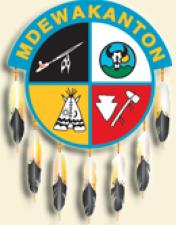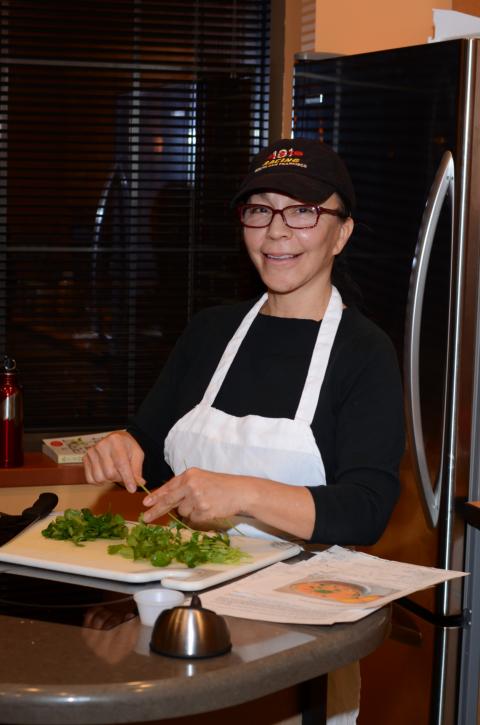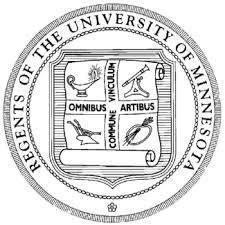 |
Canku Ota
|
 |
|
(Many Paths)
|
||
|
An Online Newsletter
Celebrating Native America
|
||
|
December 2015 - Volume
13 Number 12
|
||
|
|
||
|
$1M To Boost American
Indian Nutrition Research
|
||
|
by Kristina Busch -
Minnesota Daily
|
||
|
Shakopee Mdewakanton Sioux Community's donation will support three U-led projects.
Although they suffer more than other cultural groups from diet-related chronic diseases, there lacks widely available nutritional information specific to American Indian communities. A $1 million donation to University of Minnesota researchers is slated to increase the amount of information available on American Indian nutritional health. The money — a gift from the Shakopee Mdewakanton Sioux Community, an Indian tribe residing on historically Dakota land southwest of the Twin Cities — will help fund three ongoing projects. That work includes the creation of a public database of nutritional information and a study analyzing obstacles in academic research of American Indian food-related traditions and experiences. The donation will also help pay for an annual conferences focused on Native American nutrition and food access.
Lori Watso, who serves as the tribe's secretary and treasurer, said she was initially apprehensive to fund the University's research projects because of her own experience with Native American health. "I know [of] Native people [who] have access to healthy food and know how to use it, so I was a little reluctant," she said. "But people explained to me how really important this is because of the very little research that's done about Native people." Shakopee Mdewakanton Sioux Community tasked the University with creating new ways of increasing access to American Indian nutritional information, Watso said. The University's Healthy Foods, Healthy Lives Institute will co-host the annual conferences with the tribe, Director Mindy Kurzer said. The conferences, which Kurzer said will be the first of their kind, aim to stimulate research by identifying knowledge gaps in American Indian nutrition, she said. "We'd like to influence policymakers and funders and try to generate interest in people who could actually make a difference so we could continue this work," she said. At this point, scientists are aware that Native Americans are more likely than white Americans to be diagnosed with diabetes and obesity, Watso said. In some tribes, about half of all members deal with both. But little is done to combat nutritional problems in American Indian diets because few doctors understand the issue, she said. "When people don't have an understanding, resources don't get devoted to the issue," she said. "If there's a problem, and we can see it through research, it's easier for organizations to invest in it." Plus, American Indians are also underrepresented in science fields, said study lead Craig Hassel, who is also a food science and nutrition associate professor. He said the University teaches nutrition from a Western biomedical perspective and doesn't accommodate the customs followed in other cultures. "We may point to some of other cultures' foods and talk about what's healthy in their foods, but we don't give serious attention to the knowledge system that created those foods," Hassel said.
In scientific fields, he said, Native Americans sometimes feel the need to sacrifice their identity and cultural customs because they're not considered "legitimate" knowledge. "We're sitting right now, in the Twin Cities, on what was considered Dakota land," Hassel said. "But we don't talk at all about the knowledge of the Dakota people and how they were not only able to survive but to thrive using their knowledge of the land, of food and health." If researchers overcome cultural barriers, he said, health will likely be improved for everyone, outside indigenous communities. "It's really important that we get solid information that is accessible to people," Watso said.
Mazopiya
- A Natural Food Market
Mazopiya strives to provide whole food choices and products that are fresh, in season, minimally packaged, reasonably priced and produced by businesses with sound/ethical practices. Our product choices are evaluated carefully using the following selection criteria in order of preference: Locally Produced, Certified Organic, Fair Trade Certified and Produced Using Sustainable Practices. http://www.mazopiya.com |
||||
|
|
|
|
||
|
|
||
| Canku Ota is a free Newsletter celebrating Native America, its traditions and accomplishments . We do not provide subscriber or visitor names to anyone. Some articles presented in Canku Ota may contain copyright material. We have received appropriate permissions for republishing any articles. Material appearing here is distributed without profit or monetary gain to those who have expressed an interest. This is in accordance with Title 17 U.S.C. Section 107. | ||
|
Canku Ota is a copyright ©
2000 - 2015 of Vicki Williams Barry and Paul Barry.
|
||
 |
 |
|
|
The "Canku
Ota - A Newsletter Celebrating Native America" web site and
its design is the
|
||
|
Copyright ©
1999 - 2015 of Paul C. Barry.
|
||
|
All Rights Reserved.
|
||


